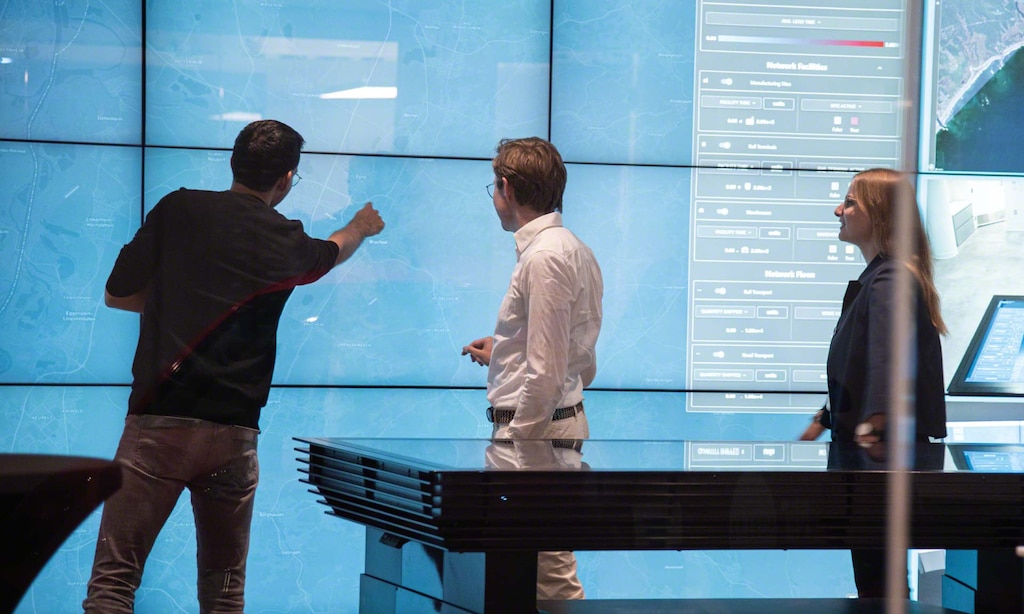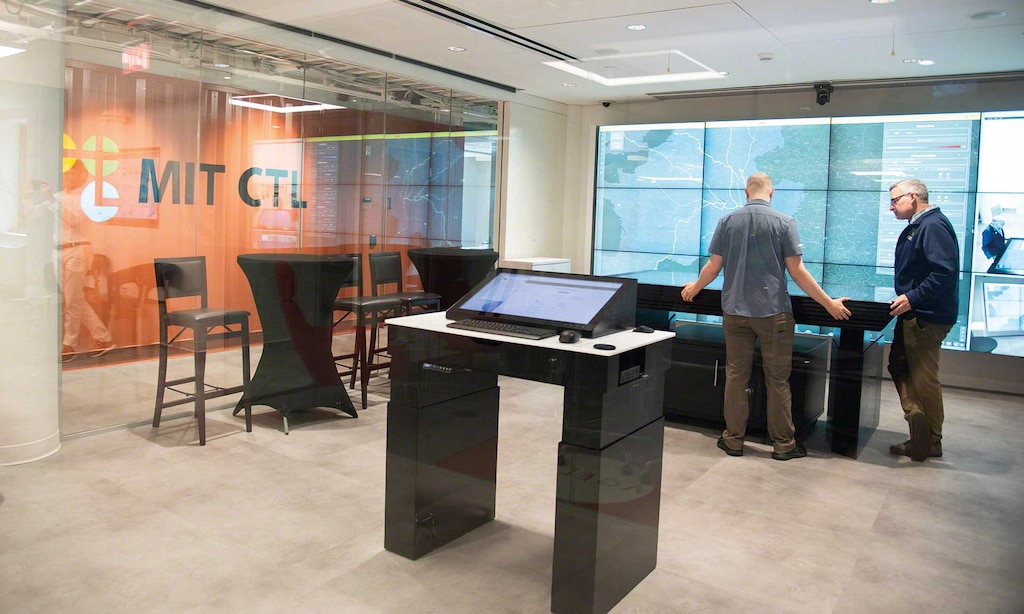The Intelligent Logistics Systems Lab will apply new AI- and machine-learning-based methods and technologies to the logistics problems with the greatest impact for businesses and society.
 Copyright: MIT CTL
Copyright: MIT CTL
The Massachusetts Institute of Technology Center for Transportation & Logistics (MIT CTL) has commissioned a new research lab to investigate high-impact applications of new data-driven technologies in the logistics industry. The formation of the lab was supported by seed funding from the intralogistics group Mecalux. Specifically, the Intelligent Logistics Systems Lab at MIT CTL will explore the potential of machine learning (ML) and artificial intelligence (AI) to transform the future of logistics operations and goods transportation.
This will be the starting point for a future research collaboration between MIT CTL and Mecalux, combining the academic knowledge of the leading US technology university with the hands-on experience of a multinational company with more than 55 years of history. Mecalux intends to provide technical insights and support from its software and automation experts over the next few years.
This new lab represents a significant step forward in our mission to innovate and improve global logistics systems. With the support of Mecalux, we are confident that our research will lead to groundbreaking advancements in the field.
The new lab will examine several research streams that may lead to new state-of-the-art approaches to address some of the industry’s most complex challenges. For instance, the lab will investigate cutting edge methods and tools that are capable of producing highly accurate near-term predictions at a high spatial and temporal resolution. Such near-term predictive capabilities are critical in enabling same-day or sub-same-day delivery and similar services designed to meet the increasingly challenging needs of both consumers and commercial customers.
This innovation space will be led by Dr. Matthias Winkenbach, Director of Research at MIT CTL. “We want to support the application of new AI- and machine-learning-based technologies to tackle the most impactful real-world challenges faced by companies and society,” says Winkenbach.
The five key research streams of the Intelligent Logistics Systems Lab
- Predictive intelligence. High-impact predictive capabilities powered by AI and ML, including the development of highly accurate near-term forecasting essential for highly responsive logistics services such as same-day and sub-same-day delivery.
- Prescriptive intelligence. New methods and models that combine operations research with ML and AI to solve complex combinatorial optimization problems critical for logistics, such as vehicle routing, inventory planning, and network design in a richer context of non-trivial real-world objectives, constraints, and uncertainties.
- Autonomous intelligence. Control and impact of advanced logistics systems and technologies that can independently perform tasks, make decisions, and learn from their environments without continuous human intervention. For instance, this includes mobile robots that assist or replace humans in warehousing or delivery activities and that operate autonomously in complex and dynamic settings.
- Collective intelligence. Collective behaviour and coordination of autonomous systems or entities working together to solve a common problem. This stream of work often draws inspiration from natural systems, such as insect colonies or bird flocks, where individual agents follow learned policies, leading to complex and efficient group behaviour. In the context of intelligent logistics systems, this involves the synchronization and cooperation of multiple agents such as autonomous robots or crowd-sourced carriers to optimize system performance.
- Augmented intelligence. How human decision-making can be enhanced by combining human intelligence with AI. Specifically, the lab intends to explore how decision support systems and operations management software can effectively combine human expertise with AI-driven insights.
Technology for operational excellence
The activities of the new research lab at MIT CTL — founded with support from Mecalux — will enable the entire industry to design supply chains and logistics systems that provide state-of-the-art customer service and set new standards in terms of sustainability and cost-effectiveness. “Operational excellence relies on the seamless integration of autonomous technology into warehouse processes. AI and machine learning can be crucial in planning and monitoring these resources,” says Javier Carrillo, CEO of warehouse technology company Mecalux.
 Copyright: MIT CTL
Copyright: MIT CTL
The Intelligent Logistics Systems Lab at MIT CTL will also study the role of new technologies in controlling autonomous transportation and delivery systems and in automating processes such as picking, sorting, packing, and shipping orders from warehouses or stores.
Another area of research will be the development of hybrid methods at the intersection of operations research (OR) and ML. The goal will be to solve the increasingly complex and multi-faceted combinatorial optimization problems that are crucial for the success of the logistics industry, including vehicle routing, inventory planning, network design, transportation planning, and related issues.
